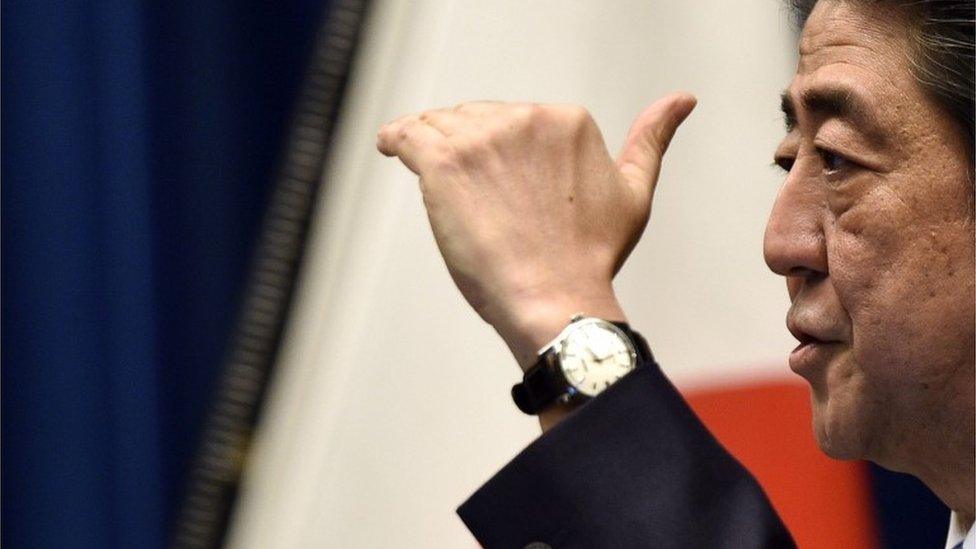Japan plans $265bn stimulus to ailing economy
- Published

Mr Abe had previously signalled a new stimulus might be needed
Japan's Prime Minister Shinzo Abe has said his government will introduce a 28tn yen ($265bn; £200bn) package to boost the flagging economy.
The move had been expected in the wake of the UK's vote to leave the European Union, which Mr Abe had warned would have a negative impact on Japan's economy. But this amount far exceeds earlier estimates.
Shares in Tokyo jumped on the news, but economists have raised concerns about whether it will have any real impact.
Full details of the package won't be released until next week, but the impact may not be felt immediately.
Some media reports say that almost half of the funds will include spending by local and national governments. That could mean building new infrastructure projects - which won't directly affect economic growth.
Getting people spending
Japan has been in a two-decade-long slump of low prices and low wage growth, and consumer spending accounts for 60% of the economy.
But many consumers feel nervous about spending their money because they're insecure about their financial future.
That's despite three years of Abenomics - the term coined to describe Mr Abe's three-pronged fiscal, monetary and structural approach to fixing the country's economic woes. The three elements are:
the monetary arrow: expansion of the money supply to combat deflation
the fiscal arrow: increased government spending to stimulate demand in the economy
the structural arrow: structural reforms to make the economy more productive and competitive
Even a controversial move in January to push interest rates below zero by the Bank of Japan failed to stimulate the economy, and get people spending again.
Economists say Japan's problems are much bigger and more complicated than the government is willing to acknowledge - and that Mr Abe needs to implement tough reforms, like getting more women in the workforce and allowing more foreign workers in, to boost growth in the world's third largest economy.
News about the stimulus package comes as speculation mounts that Japan's central bank - the Bank of Japan - could push interest rates even further below zero when it holds its monetary policy meeting this week.